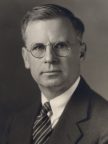Edwards-Goodpasture College
Edwards-Goodpasture Advising College Faculty Leaders
Associate Professor, Pediatrics
Associate Professor, Pathology, Microbiology and Immunology
Instructor, Endocrinology, Medicine
Learn more about Dr. Wright here and here.
Edwards-Goodpasture Associate College Advisors
Instructor, Hematology/Oncology, Medicine
Learn more about Dr. Grieb here and here.
Edwards-Goodpasture Members
Edwards-Goodpasture Advising College Namesakes
Kathryn M. Edwards, MD is the Sarah H. Sell and Cornelius Vanderbilt Professor of Pediatrics. Dr. Edwards graduated from Grinnell College with a degree in Chemistry in 1967 and a degree in pharmacology from the University of Iowa in 1969. She attended University of Iowa for medical school and graduated in 1973. She completed her training in pediatrics and infectious diseases in 1980 at the Children’s Memorial Hospital at Northwestern University and the Presbyterian St. Luke’s Hospital of Rush University in Chicago.
Dr. Edwards joined the Vanderbilt Vaccine Program in 1980 and has conducted many pivotal vaccine studies since that time. She has had an extensive experience in leading NIH-funded multicenter initiatives; in designing, conducting, and analyzing pivotal Phase I, II, and III clinical studies on vaccines and therapeutics; in facilitating networking with basic and clinical investigators with a wide range of interests and expertise; and in mentoring many of the young investigators who currently work within her research unit. She initially focused her efforts on conducting studies of Haemophilus influenzae, type b capsular polysaccharide protein conjugate vaccines in infants within the NIH-funded VTEU. In 1985, she received NIH-funding to conduct a comparative influenza efficacy trial of live attenuated and inactivated influenza vaccines in 3000 children and adults each year for five years. These studies documented the safety and efficacy of both inactivated and live attenuated influenza vaccines in a very large number of children and adults. In 1990, she coordinated the NIH-funded Multicenter Acellular Pertussis Trial comparing 13 different acellular pertussis vaccines produced by different manufacturers throughout the world with two whole cell pertussis vaccines produced in the United States. In these studies, more than 2000 infants were enrolled at six VTEU sites in the United States, and the safety and immunogenicity of the vaccines were compared. In the late 1990s, she conducted additional studies on bacterial vaccines when she studied pneumococcal conjugate vaccines in 260 young infants and determined their role in preventing colonization and disease.
In 1998, Dr. Edwards was awarded a contract from the Centers for Disease Control and Prevention (CDC) to conduct active population-based surveillance to monitor the impact of newly licensed vaccines. In these surveillance efforts, she and her colleagues have determined the burden of many important viral respiratory pathogens, including influenza, RSV, PIV, rhinovirus, coronavirus, and hMPV in both the inpatient and outpatient settings. This surveillance effort was extended to include rotaviral surveillance. For the past decade, Dr. Edwards has also led the CDC-funded Center for Immunization Safety Assessment (CISA) site at Vanderbilt where she and her colleagues assess adverse events associated with vaccines in subjects of all ages. Dr. Edwards was also awarded a CDC contract in 2011 to conduct comprehensive pneumonia surveillance studies in over 2000 adults and children admitted to Vanderbilt adult and pediatric hospitals and at one other community hospital in Nashville. This generated a large body of published work outlining the etiology and incidence of pneumonia in children and adults. Dr. Edwards has served on several CDC, NIH, WHO, and IDSA committees. In 2006, she received the IDSA Mentor Award for her exceptional mentoring and in 2014 received the Maureen Andrews Mentoring Award from the Society for Pediatric Research. In 2008 she was elected to the National Academy of Medicine of the National Academy of Sciences. In 2016 she was awarded the Charles Mérieux Vaccinology Award from the National Foundation for Infectious Diseases. In 2018 she was awarded the Maxwell Finland award for Scientific Accomplishments by the National Foundation for Infectious Diseases, and in 2019 she received the Frank Morriss Leadership Award in Pediatrics. In 2020, Dr. Edwards received the John Howland Award by the American Pediatric Society.
Dr. Ernest William Goodpasture was born in 1886 in Montgomery County, Tennessee. The son of a lawyer, Goodpasture, was educated at Vanderbilt University and at Johns Hopkins University, where he gained his M.D. in 1912, followed by a Rockefeller Fellowship in Pathology and positions at Harvard Medical School, in the United States Navy, and in Pennsylvania. Goodpasture returned to Vanderbilt in 1924 as Chair and Professor of Pathology, a post he retained until his retirement in 1955. In 1931 Goodpasture devised a method of virus culture that provided an enormous stimulation to virology. Before this, as viruses will grow only in living tissue, they could be studied experimentally either in a living host, or, after the work of Alexis Carrel in 1911, in vitro in a tissue culture. The first method was expensive and difficult to control while the second, before the advent of antibiotics, was susceptible to contamination by bacteria.
Goodpasture, in collaboration with Alice Woodruff, avoided such difficulties by providing a cheap living environment for viral growth “a fertile egg.” Their first success was with fowl pox, but within a year they had also grown both cowpox and coldsore viruses. Within a few years Goodpasture’s technique had made possible the production of vaccines against yellow fever by Max Theiler and influenza by Thomas Francis. Goodpasture advanced the scientific understanding of the pathogenesis of infectious diseases, parasitism and a variety of rickettsial and viral infections. His research enabled the development of vaccines against chicken pox, smallpox, yellow fever, typhus, Rocky mountain spotted fever and other diseases. He also described Goodpasture’s syndrome, which bears his name, despite the fact that the case that was described by Goodpasture was presented as a case of influenza and probably did not have anti-GBM disease. He died in 1960.
Source: Wikipedia



































